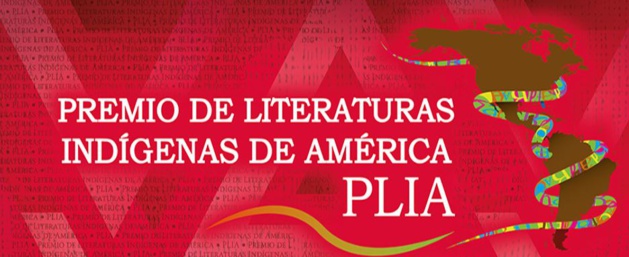The American Indian Youth Literature Award (PLIA), which awarded the winner with 25,000 dollars, has extended the call in its third edition, devoted to stories until next 31th August.
Those who can compete for the prize are indigenous people of the American continent, no matter their current residence, whose work is written in an indigenous language recognised by its contribution to indigenous literature.
The prize has been called by the University of Guadalajara, the National Indigenous Languages Institute (INALI), the National Council for Culture and Arts (CONACULTA), the National Commission for the Development of Indigenous Peoples (CDI), the Secretary of Education of Jalisco (SEJ), and the Secretary of Culture of Jalisco (SCJ).
The PLIA was created by various institutions with the objective of recognising the career of the writers of literature of America to enrich, develop, preserve, and spread the legacy and cultural wealth of native people through literature in any of it genre (poetry, novel, theatre, story, or essay).
2014 edition, poetry
Last year, was Esteban Ríos Cruz, poet in Didxazá language, Isthmus Zapotec, native to Asunción Ixtlaltepec, Oaxaca (1962), who won the prize. He is author of Dxi gueella’ gaca’ diidxa’ (When the night is word) (2006), Ca diidxa’ guchendú (Germinate Words) (2009), and Caxquelaguidi dxizezá (The hurricanes of time).
Esteban Ríos said that the mission of the writer in indigenous languages is to name things according to the concept existing in their culture: “It is time that in the furrows of the maize field of the words the spring of freedom buds, without feelings of blame, with strong arms and haughty look.”
For the call of 2014, 20 candidates were nominated: five women and fifteen men who presented works written in eleven indigenous languages and of six nationalities (Colombia, Peru, Bolivia, Ecuador, Honduras, and Mexico), according to the organisers.
Those who can compete for the prize are indigenous people of the American continent, no matter their current residence, whose work is written in an indigenous language recognised by its contribution to indigenous literature.
The prize has been called by the University of Guadalajara, the National Indigenous Languages Institute (INALI), the National Council for Culture and Arts (CONACULTA), the National Commission for the Development of Indigenous Peoples (CDI), the Secretary of Education of Jalisco (SEJ), and the Secretary of Culture of Jalisco (SCJ).
The PLIA was created by various institutions with the objective of recognising the career of the writers of literature of America to enrich, develop, preserve, and spread the legacy and cultural wealth of native people through literature in any of it genre (poetry, novel, theatre, story, or essay).
2014 edition, poetry
Last year, was Esteban Ríos Cruz, poet in Didxazá language, Isthmus Zapotec, native to Asunción Ixtlaltepec, Oaxaca (1962), who won the prize. He is author of Dxi gueella’ gaca’ diidxa’ (When the night is word) (2006), Ca diidxa’ guchendú (Germinate Words) (2009), and Caxquelaguidi dxizezá (The hurricanes of time).
Esteban Ríos said that the mission of the writer in indigenous languages is to name things according to the concept existing in their culture: “It is time that in the furrows of the maize field of the words the spring of freedom buds, without feelings of blame, with strong arms and haughty look.”
For the call of 2014, 20 candidates were nominated: five women and fifteen men who presented works written in eleven indigenous languages and of six nationalities (Colombia, Peru, Bolivia, Ecuador, Honduras, and Mexico), according to the organisers.



 English
English



